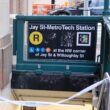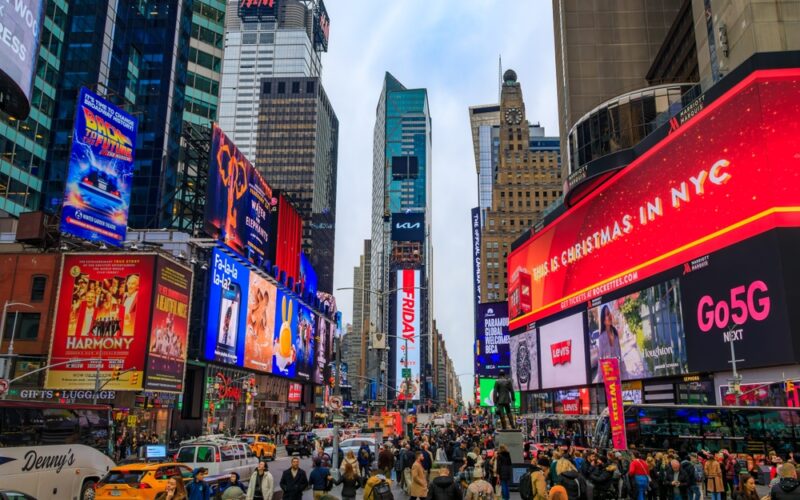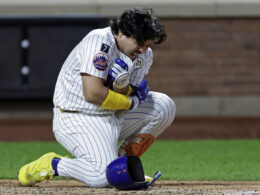When you walk through Times Square, you might see older New Yorkers greeting each other before lunch, stagehands heading into rehearsal, or visitors from around the world having their New York moment. It’s a living, shared place of art and community. Now, a proposal before state regulators threatens that vibrancy: a massive casino at 1515 Broadway.
We write as neighbors and leaders whose organizations have served this community for decades: Encore Community Services, which has supported older adults for nearly 50 years, and the Entertainment Community Fund, serving everyone on stage and behind the scenes on Broadway for 143 years. We believe that the proposed casino in Times Square would harm the very people we serve and the creative ecosystem on which we rely.
For older adults on fixed incomes, the targeted marketing of free play vouchers and rides timed to benefit checks is not benign. AARP data shows that problem gambling affects up to 10% of adults over 60, and proximity can make it worse. At Encore, we see older neighbors stretching every dollar to cover rent, meals, and medications.
When gambling losses pile up, the fallout often shows up at our door: more requests for emergency meals, help with eviction notices, and mental health supports. A casino across the street would only increase those crises.
Times Square’s revival wasn’t luck. Over three decades, community investment in public space and the arts made it safer, brighter, and more walkable. What was once a notorious corridor of vice and disrepair has become a beloved neighborhood and the global epicenter of the performance arts. Replacing that with a business built on addictive behaviors would reverse progress.
Broadway and Times Square together create more than 90,000 jobs. Theaters fill restaurants, hotels, and shops, drawing audiences day in and day out.
Casinos, by design, keep people inside. That means less revenue for neighbors and a hollowed-out commercial district. Just as importantly, casinos siphon attention from the arts themselves.
Broadway is not just an economic driver but a cultural touchstone, an institution that has carried New York through crises from 9/11 to the pandemic. Its vitality depends on audiences coming together in shared spaces, from orchestra seats to late-night diners. A casino that turns the spotlight away from our stages undermines what makes New York a beacon of creativity in the first place.
Times Square is already one of the most trafficked pedestrian zones in the world. More than 350,000 people pass through our neighborhood daily. Adding a 24-hour casino, with rideshares, bus traffic, and tour fleets, would clog the arteries. For older adults who depend on safe crossings or mobility aids, overcrowding isn’t just frustrating; it’s dangerous. Supporters argue the casino would bring dollars. But first, consider what it would take away.
We hear the arguments for economic upside — lots of dollars, new jobs, even a museum or safety fund. But in other cities, such goodwill rarely materializes and the social and spatial costs stick around. Not every problem can be solved with grants, especially when people’s ability to gather, move, and feel secure is at stake.
Times Square doesn’t need a casino to thrive. Its future lies in doubling down on what already makes it unique: the arts, the workers who bring them to life, and the residents who keep this neighborhood vibrant. That means safer and more accessible streets, stronger supports for older adults, and continued investment in Broadway and small businesses.
We can imagine a Times Square where Encore’s older writers share their stories in community spaces, where theater workers know they can afford housing and health care, and where visitors from around the world come not to gamble but to take part in a neighborhood that is alive with creativity and connection.
There is a better way forward. The Community Advisory Committee should reject this plan and heed the voices of the 35 organizations in the No Times Square Casino Coalition, comprising nonprofits, arts institutions, unions, small businesses, and local neighbors. The state Gaming Board should favor license sites already equipped for heavy traffic, like Yonkers or Aqueduct, instead of a cultural corridor built for people, not slot machines.
This intersection belongs to the people who live here and express themselves through art. It’s a place where someone can sit in Encore’s writing group one afternoon and then catch a Broadway show the next. That balance between care and creativity is what made Times Square’s revival a success. We shouldn’t gamble it away.
Kaplan is the executive director of Encore Community Services. Benincasa is the president and CEO of the Entertainment Community Fund.








